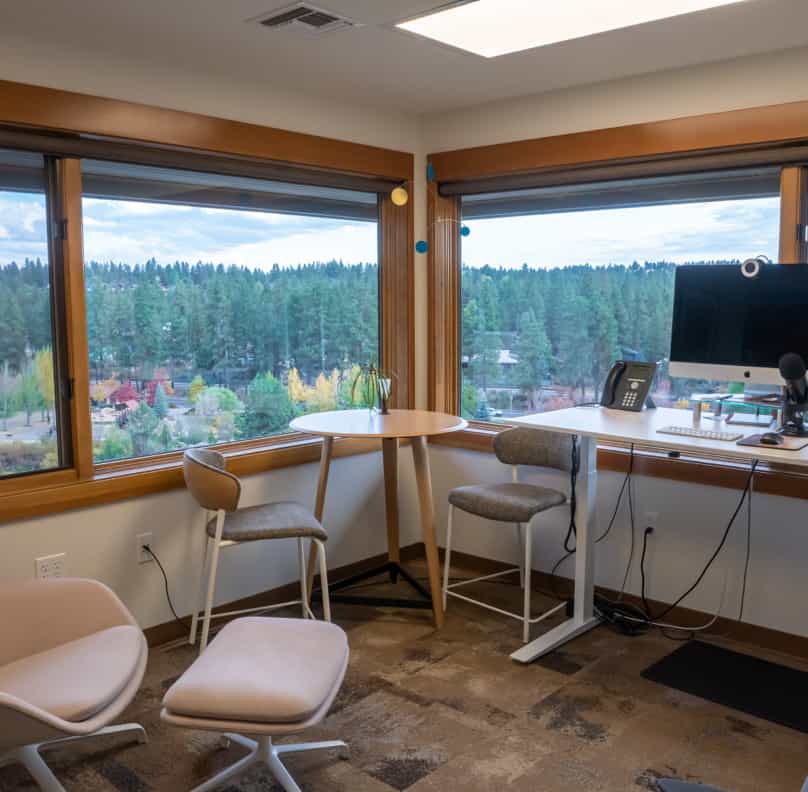It’s no secret that work can be stressful. In fact, 83% of US workers report feeling stressed about work. However, not all stress is bad. Our biological response to stress is one reason humans have survived and climbed to the top of the food chain.
The problems with stress arise when you’re unable to manage it and when your body and mind are under constant stress, i.e. chronic stress. These situations lead to the negative mental and physical health side effects that stress is known for, like depression and a weakened immune system.
Stress and Work
Employers should be particularly aware of these stress-related stats:
- Companies experience as much as $300 billion in lost productivity due to stress annually.
- Almost $200 billion is spent on stress-related-illness expenses.
- 1 million workers are absent from work due to stress every day.
Companies like Aetna are implementing well-being programs to increase mindfulness and reduce stress at work. Just one year into this program, Aetna experienced a 7% decrease in healthcare costs, which has saved the company over $6 million. Aetna’s study also found a correlation between mindfulness and productivity. Employees gained an average of 62 minutes of productivity per week, saving the company $3,000 per employee per year.
If you’re thinking, “Wait, back up. How does mindfulness impact productivity?” Here’s how:
- Mindfulness training can boost your focus and working memory, and help you perform better on the GRE.
- Having a regular mindfulness practice can change your brain, thickening the regions of your brain that assist in your learning, cognition, memory and emotional regulation.
- Mindfulness has been linked to improved concentration and decision making.
Mindfulness isn’t complicated
If you’re wondering how you can get started with your own mindfulness practice, there’s good news — it doesn’t have to be complicated. Mindfulness is the act of recognizing the present moment, with a gentle focus on something like your breath or physical sensations.
You can choose to be mindful in nearly every activity, so incorporating mindful moments into your work day isn’t hard. It just takes intention. Here are four ways you can manage stress and practice mindfulness at work today:
1. Take a break
The human body isn’t built to sit all day and nobody’s brain can focus for eight hours at a time. One study found that the most productive people work for 52 minutes, then break for 17 minutes. According to DeskTime, “The break of 17 minutes lets your mind, your attention span and your body rest so that when the 52 minutes of work begin, you’re entirely ready to knock off the tasks to be done.” So work in sprints and don’t skip breaks.
At The Haven, members can enjoy a stretch break on the patio, overlooking the Deschutes River, or join in on a conversation in the cafe.
2. Sensory Walk
Speaking of breaks, here’s a good one: taking a sensory walk. Instead of walking while looking at your phone, focus on what you see, hear and smell. This will keep you focused on the present moment and nature has a way of inspiring awe, which is another science-backed way to boost your well-being.
Haven members have an especially good reason to take a sensory walk since we’re just steps away from the Deschutes River trail. The natural beauty is enough reason to go outside but Stanford researchers also found that “walks in a natural setting led to better moods, improved performance on memory tasks, and decreased rumination when compared to urban walks.”
3. Yoga
Numerous studies have found that practicing yoga is good for your brain and body. Bringing awareness to your breath and the present moment is central to yoga. And studies show that practicing yoga can help reduce stress, anxiety, and depression — perhaps better than traditional medication.
Free YouTube videos make access to trained yoga teachers easier than ever. You can practice nearly anywhere, even the Haven’s deck (weather permitting).
4. Meditation
It’s like pushing the reset button. Guided meditations of all kinds are only a few clicks away and they can help you step away from a chaotic work day to ground yourself, lower your stress level and become more self-aware. Insight Timer offers tons of free guided meditations, talks, and events that you can access right at your desk.
Using The Haven’s deck to simply watch the flow of the Deschutes River, listening to its pitter-patter, can help. ‘Blue mind’ is a phenomenon that explains being in, on, or near water can put us in a mildly meditative state. It’s also the antidote to ‘red mind,’ an “over connected” anxious state, typically linked to screens.
Incorporating mindfulness into your work day isn’t complicated but it does require effort. Schedule your breaks and mindful activities on your calendar. Your body, mind, and employer will thank you.
Meet the author
Kasey Yanna
Haven Ambassador, Communications Specialist
Kasey is a Haven member, freelance communications specialist, and proud mom. An entrepreneur at heart, she dabbles in many ventures, including food blogging and leading local coffee shop tours. With a deep appreciation for good food and gatherings, Kasey is your go-to person for tips on the best food and drink spots in Bend.
More articles from Kasey

